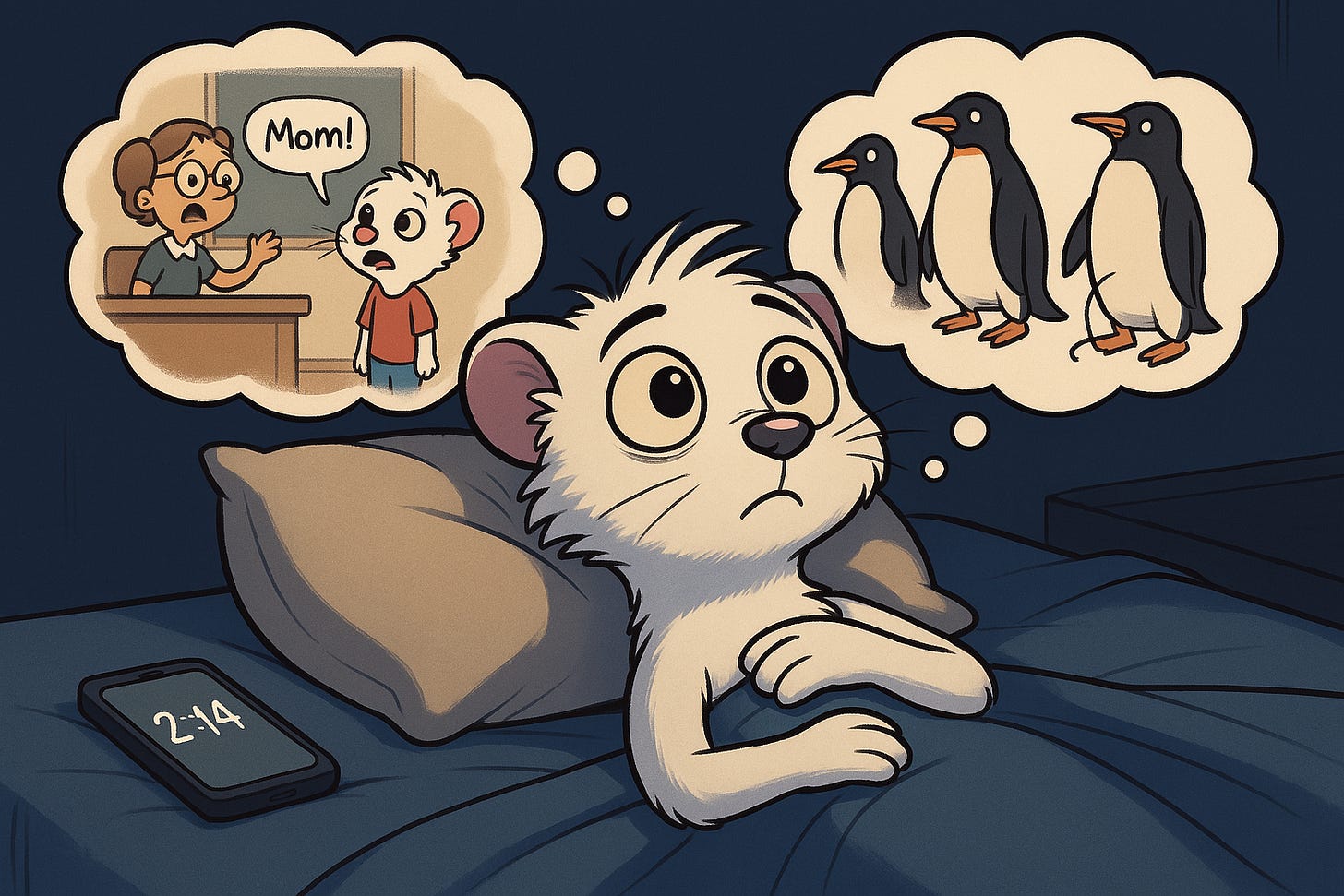ADHD & Sleep: Why It’s So Hard (And How to Actually Rest)
This guide breaks down why your brain fights rest, and offers practical tips to finally get better sleep.
You know how it goes. You want to sleep. You even made that dramatic ‘tonight’s the night’ promise to yourself. But now it’s 2:14 AM and you’re reorganizing your camera roll, Googling “do penguins have knees?” (spoiler: yes they do), and your brain? Oh, it just clocked in for the night shift.. replaying every awkward thing you’ve ever said, starting with that time in fifth grade when you called your teacher ‘mom’ (I actually did this).
ADHD and sleep have a complicated relationship. And here’s the kicker: it’s not because you don’t care about sleep. It’s not laziness. It’s not poor time management. It’s that your ADHD brain has its own unique bedtime rituals, most of which don’t involve sleeping.
Let’s break down what’s really happening, and why ADHD makes getting rest so wildly difficult (and what to do about it).
Sike, I lied. Quick diversion. Before we dive in, our team (literally just two ADHDers) needs your input on what topics to cover next. We want this project to actually help—not just fill your inbox.
Messages like: "I support your work because it is an extremely valuable resource and guide for us ADHDers. I am so glad to have found your writing!" - that’s the kind of thing that keeps us going (cue the onion cutting). And we want to keep it that way.
We made a teeny tiny survey that takes less than 2 minutes. If you fill it out, we sincerely hope you have a beautiful day. And if you don’t… let’s just say one editor had to cut a line out (just kidding).
Ok, NOW let’s gets into it.
Why ‘Good Sleep’ Can Feel Impossible for ADHD Brains
Short answer: ADHD messes with the brain systems that are supposed to help you power down.
Instead of winding down like most people, your brain ramps up, chasing dopamine, spiraling through unfinished to-do lists, or getting stuck in the “just one more episode” loop. Research shows that executive function challenges (like task initiation and time blindness) make it harder to start sleep, just like they make it harder to start work.
Now let’s get into the reasons ADHD brains fight sleep:
Overactive Brain & Nighttime Hyperactivity: Your ADHD brain often kicks into hyperdrive exactly when you're supposed to relax, turning bedtime into prime overthinking time. In fact, research shows that ADHD-related hyperactivity in the evening can make it harder to drift off and leads to more restless sleep.
Delayed Sleep Phase Syndrome: Your internal clock is a rebel. Many ADHDers are naturally inclined to stay up late and sleep in, clashing with traditional schedules. Up to 75% of adults with ADHD experience delayed sleep phase syndrome, meaning we're naturally wired to fall asleep and wake up later than most people (source).
Restless Mind & Body: ADHD brains crave stimulation, even at night. Lying quietly in the dark often isn't stimulating enough, causing restlessness. Lower dopamine levels, common in ADHD, have been linked to nighttime restlessness, including restless legs and overall discomfort when trying to relax (source).
Medication Timing & Sleep Impact: ADHD meds can significantly impact sleep patterns, whether it’s falling asleep or staying asleep. We won’t dive deeply into meds today, but know they can also be a major factor.



